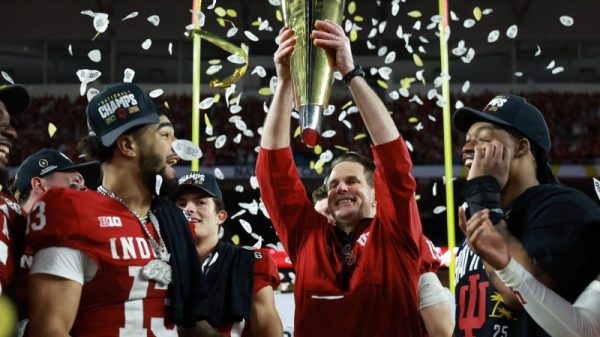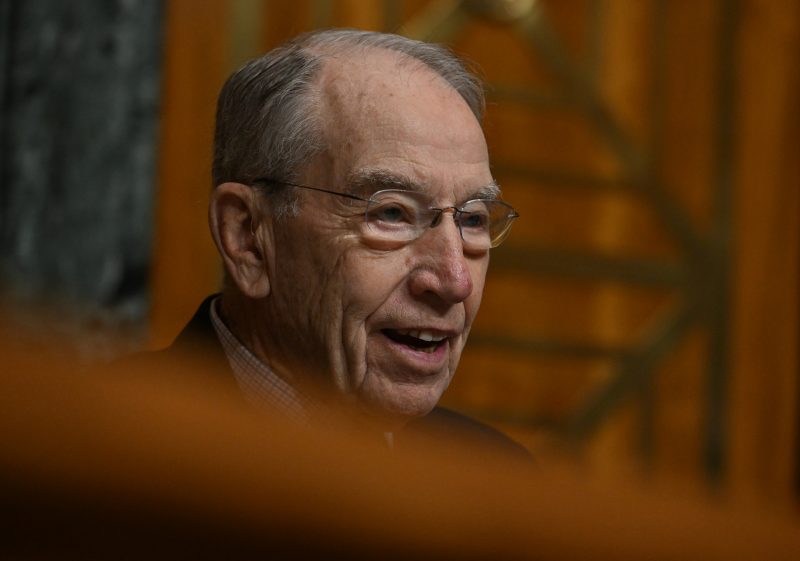In early May, Sen. Charles E. Grassley (R-Iowa) and House Oversight Committee Chairman James Comer (R-Ky.) presented a staggering allegation against the sitting president of the United States: The FBI was in possession of a document alleging that Joe Biden had taken a massive bribe while serving as vice president under Barack Obama.
A letter the two legislators sent to Attorney General Merrick Garland and FBI Director Christopher A. Wray demanded that the bureau produce a document, recorded on a Bureau form FD-1023 in mid-2020, that memorialized conversations between a confidential informant and a Ukrainian executive. After all, the letter claimed, the form “describes an alleged criminal scheme involving then-Vice President Biden and a foreign national relating to the exchange of money for policy decisions.”
Since then, nothing much has changed. We learned that the informant is considered credible, given their history, but that of course doesn’t extend to the executive with whom the informant was speaking. We learned that the executive claimed to be in possession of recordings of conversations with Joe Biden and his son Hunter. We learned that the Justice Department — then under the oversight of Attorney General William P. Barr — evaluated the allegations, apparently without triggering a full investigation.
We also learned that, despite more than a month of focus and the breathless attention of multiple powerful Capitol Hill Republicans, the allegations are no more credible than they were at the point of Grassley and Comer’s original letter. There have been no recordings made public; several Republicans have admitted that they may not exist. We’ve learned that the executive at issue — Mykola Zlochevsky, founder of the energy firm Burisma — has in the past denied ever speaking with the Bidens. There is no evidence of an unaccounted-for $5 million appearing in the pockets of either Joe or Hunter Biden.
After fading to embers, the whole issue was reignited last week when Grassley simply went ahead and published the version of the FD-1023 he’d had in his possession all along.
“Thx to whistleblowers now the world can see what ive seen & what the FBI tried to conceal,” he wrote on Twitter. “Serious allegations from trusted FBI source What did the FBI do to investigate????”
When it isn’t confusing, this is misleading. There’s his use of “now,” which makes no sense, given that he clearly had a copy of the 1023 back in May that he could have released at that point. What’s more, the past 80 days have been heavily focused on what the FBI did to investigate, leading the FBI to describe what it undertook to legislators behind closed doors. Grassley also falls into a familiar, misleading pattern, conflating the credibility of the informant with the credibility about the allegations. I trust my wife, but if she tells me that our 6-year-old claims to have seen a dragon on the roof, I don’t suddenly believe that there was a dragon on the roof.
One right-wing blog made a similarly fraught rhetorical leap Monday, reporting that the FBI had confirmed that the informant had, in fact, traveled to meetings that were documented in the FD-1023. The headline — “FBI Told Delaware U.S. Attorney It Had Already Partially Corroborated Biden Bribery Claims, Source Says” — again transfers the credibility of the informant over to the allegations made to the informant. The document published by Grassley includes a specific warning: the confidential human source (CHS) “has only met Zlochevsky in person on one occasion and has spoken to him only twice on the telephone; as such, CHS is not able to provide any further opinion as to the veracity of Zlochevsky’s aforementioned statements.”
As journalist Marcy Wheeler notes, validating the timeline of the informant’s conversations also means that one conversation occurred in 2019, after there were public “news reports about the investigations into the Bidens and Bursima [sic].” It was during this year that Donald Trump and his allies were hoping to elevate now-debunked claims by a fired prosecutor that Joe Biden worked with Hunter Biden to protect Burisma (for which Hunter Biden served as a board member) to boost Trump’s reelection bid.
Over the course of 2019 — and particularly after the Biden-Burisma link was public — the likelihood that conversations about Joe Biden included deliberate misinformation increased. By September of that year, Trump’s efforts to pressure Ukrainian President Volodymyr Zelensky into making a public announcement about a probe into Biden had become public and triggered an impeachment inquiry. That prompted Trump’s attorney Rudy Giuliani to head to Ukraine on a fishing expedition that included his meeting with a person later sanctioned by the Trump administration as a Russian agent.
In essence, Grassley’s release of the FD-1023 serves as precisely the sort of announcement that Trump sought and at just about the exact same time: an unfounded and dubious claim of wrongdoing landing in July of the year before a presidential election.
It’s not clear why Grassley decided to make the document public at this point. Again, it’s not that he just received it, despite his suggestion in his tweet. It’s not as though there is new confirmation of the validity of the allegations. It may be an effort to piggyback on questions about the plea agreement Hunter Biden reached with federal prosecutors and questions about whether he was treated with inappropriate leniency. Or it may be an attempt to spritz the waning embers of the allegation with a last bit of lighter fluid.
Rep. Claudia Tenney (R-N.Y.) appeared on Fox Business on Monday morning, where the host noted that the Oversight Committee’s top Democrat, Jamie B. Raskin (D-Md.), “still says there’s unverified claims” in the document.
“What are you going to do when you’re a defense attorney? You conflate, you defend, you deflect because you know that you have no case,” Tenney said of Raskin with unintentional irony. “And it’s going to come time for the Democrats to actually say, ‘This is worse than Watergate.’”
It may still be the case that Joe Biden received a $5 million bribe from Burisma, despite Zlochevsky’s saying he’d never spoken to Biden and despite there being no documented evidence of any such massive overseas payment. It may still be the case that the sitting vice president in 2015 — a guy so eager to be elected president that he started making bids for the Democratic nomination in the 1980s — decided to simply cash out on his government experience for a relatively modest sum by committing a federal crime. Until the evidence that this occurred extends beyond that same initial 1023, though, it seems unlikely Democrats will consider this Watergate-adjacent.
But at least Republicans got the year-before-the-election, Ukraine-related unproven allegation against Biden that they’d been trying to land since 2019.



























